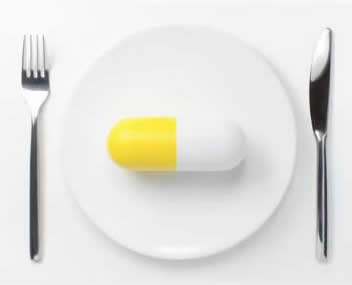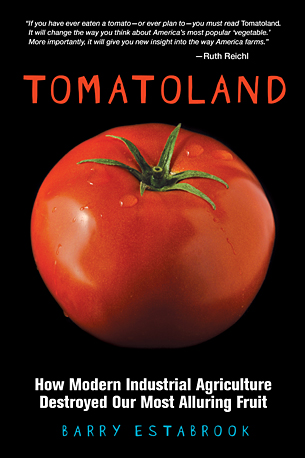
Corporations
are putting consumers at risk!
They
exist to make money for stockholders,
not to serve the needs of the consumer.
They're about sales, not about service.
It's a matter of profit over prudence.
Too big to fail is too big to serve.
To serve is to succeed.
See 'Doctors' video.
What follows is important to your health and well-being.
What's
Lurking In Your Food?
Pesticides, Bugs And Toxins
By Catherine Pearson
The Huffington Post

Think
you really know what's in your food? Think again. According to an
upcoming report on the TV show "The Doctors," when Americans
reach for a snack, they're likely taking in more than they bargained
for.
Case in point: In California, recently, several potato chip companies
settled with the state to reduce the levels of acrylamide. The chemical
is on its Proposition 65 list of those known to cause cancer or "reproductive
toxicity," which the state's Office of Environmental Health Hazards
defines as birth defects and other reproductive harm. Acrylamide is
reportedly formed during the manufacturing process, when certain foods
-- particularly starchy ones -- are baked, fried or roasted.
"That shocked me quite a bit," admits Dr. Travis Stork,
an emergency room physician and one of the co-hosts of "The Doctors."
"I was unaware that there was acrylamide in chips."
Another shocking finding: the claim that there are measurable quantities
of bug and rodent parts in foods -- with some saying that Americans
eat an estimated one pound of bug and rodent parts each year without
necessarily knowing it.
Still that finding, however stomach turning it is, is not necessarily
Stork's biggest concern.
"Yes, it's disgusting and shocking and no, no one wants to go
in and eat a bug leg or a bug wing when they eat a snack," he
says, "but I would argue as a physician that perhaps sometimes
there are other things that you also can't see that are more harmful
to your health."
Those "things" are pesticides, which Stork says people should
try and avoid as much as possible. He suggests buying organic, particularly
when it comes to the so-called "dirty dozen" of fruits and
vegetables, as determined by The Environmental Working Group.
"It's a fine line, because you don't want to eat bug and rodent
parts," he says, "but you also don't want to use too many
pesticides to try and eliminate that."
Which fits into Storks overall assessment that while it is perhaps
the most surprising, the most ick-worthy ingredients in foods will
catch people's attention, simple, more well-known additives can actually
cause the most damage.
"The main takeaway is that you should really limit eating overly
processed foods," he says. "And when you do eat them, it's
important to look at the ingredients. We can sit here and talk about
these [shocking] chemicals, but if the first ingredient is sugar,
that's probably a better tip off that what you're eating could lead
to poor health consequences."
See Toxic Food Additives To Avoid. See Sugar Is a Four Letter Word. See Sugar: The Bitter Truth.
The
links below contain data regarding the ongoing consumer health risks
posed by the current activities and marketing strategies of many food
and drug corporations, which endanger the quality of life of many
unsuspecting consumers. Check out the marked ![]() links
especially.
links
especially.
The corporate-military-industrial complex, as described by American presidents Dwight D. Eisenhower and John F. Kennedy, is alive and flourishing. Only consumers, acting as an informed electorate, can put an end to these activities. Please check out the links below, then take action here!
![]() Factoid
Factoid
Due
to the power and corrupting influence of Big
Pharma, the teaching
of nutritional science and the use of vitamin and herbal supplements
is
not taught to any significant extent in our medical schools. The obvious
reason is that teaching this science reduces the use of prescription
drugs.
![]()
Lasik Eye Surgery - FDA Warning
http://en.wikipedia.org/wiki/Preservative
![]()
http://www.naturalnews.com/007024.html
http://www.rense.com/general52/msg.htm
http://en.wikipedia.org/wiki/Titanium_dioxide
http://en.wikipedia.org/wiki/Azodicarbonamide
http://en.wikipedia.org/wiki/Polydimethylsiloxane
http://www.foodadditivesworld.com/preservatives.html
![]()
http://www.preventcancer.com/consumers/food/hotdogs.htm
![]()
http://www.diet-blog.com/07/whats_lurking_in_fast_food.php
![]()
http://ezinearticles.com/?The-Dangers-of-Fast-Food&id=1592564
http://www.ab-core-and-stomach-exercises.com/supersize-me.html
http://eastviewchemistry.pbworks.com/w/page/31614716/Fast-Food-and-Preservatives
![]()
![]()
Pages And Points To Ponder
![]() *Consultation
with a health care professional should occur before applying
adjustments or treatments to the body, consuming medications
or nutritional supplements and before dieting, fasting or exercising.
None of these activities are herein presented as substitutes
for competent medical treatment. See
Disclaimer.
*Consultation
with a health care professional should occur before applying
adjustments or treatments to the body, consuming medications
or nutritional supplements and before dieting, fasting or exercising.
None of these activities are herein presented as substitutes
for competent medical treatment. See
Disclaimer.
Khalsa
WebMasters.com
© All rights reserved.
Presented
as a public service.



